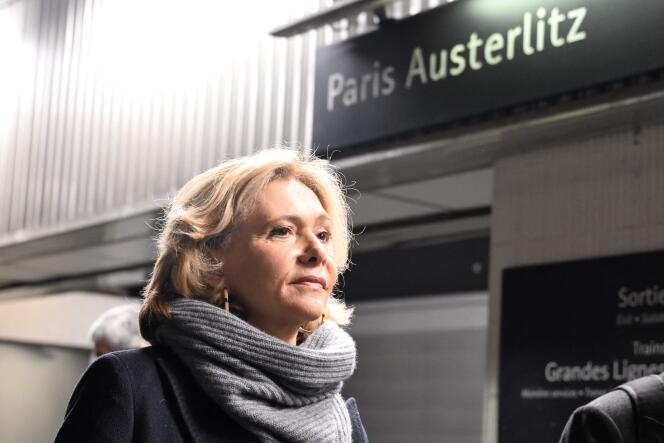


"Thank you, Olympic Games!" On Monday, March 25, Valérie Pécresse, president of the Ile-de-France region and the transport authority Ile-de-France Mobilités, took stock of the progress of work on the Olympic and Paralympic Games, aiming to highlight the efforts being made to get everything ready.
Instead of complaining about the delays, the disruptions caused by the construction or potential future traffic difficulties, she wants to highlight how the non-negotiable deadline accelerated the progress on numerous sites. She has even launched the hashtag #mercilesjeux ("Thank you, Olympic Games") on social media. The Paris region's transport companies have concurred with her perspective, revealing throughout the week the state of progress on several major projects essential for the smooth operation of the metro and RER lines, and for welcoming seven million spectators this summer.
First stop: Morangis, close to the runways at Orly airport, south of Paris. This is where the Régie Autonome des Transports Parisiens (RATP) has set up one of the two maintenance centers for trains on line 14, which from the end of June will link the airport to the Saint-Denis-Pleyel station. Today, line 14 runs between the Mairie-de-Saint-Ouen station just north of Paris and Olympiades station in southeast Paris. RATP CEO Jean Castex gave Pécresse a tour of this brand-new facility, with six elevated tracks for working on metro trains.
It will operate from 6 am to 10 pm, seven days a week, in parallel with the Saint-Ouen station. Morangis has already begun to receive the new MP14 trainsets delivered by Alstom and financed by the region – a €500 million contract. Thirty-five are in operation today, over 50 will be running by the time of the Olympic Games and eventually 72.
A year ago, Alstom's delays led to the threat that there wouldn't be enough cars to extend the line to both ends. "This could also have delayed the extension of line 11 to the east, from Mairie-des-Lilas [Paris suburb] to Rosny-Bois-Perrier in the north [Paris suburb], which uses the same rolling stock," said Pécresse. "It was out of the question." Under pressure from the Olympic deadline, Alstom eventually opened a second production line in Valenciennes (northern France).
In the metro tunnels too, companies are pulling out all the stops. The Orly station has just been approved by the safety commission. Several traffic disruptions are still scheduled so that the southern section of the automatic metro can be safely connected to the rest of the stations. But the line is well on the way to becoming operational in June. "The Olympics are creating a collective mobilization of the companies working on this site: Nobody wants to be the ugly duckling," said Stéphane Garreau, project manager at RATP. Without the Olympic horizon, the line would probably not have been ready for several months, said Castex.
You have 49.64% of this article left to read. The rest is for subscribers only.
